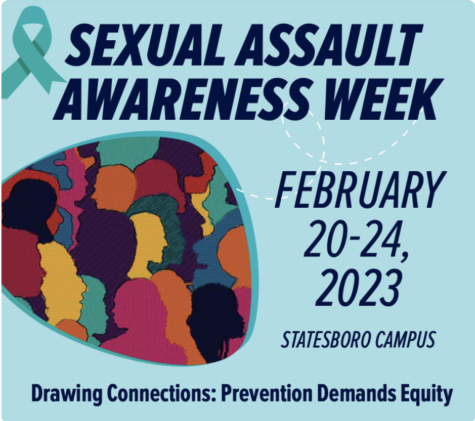Spiritual but Not Religious: The Movement
November 13, 2017
Over a quarter of U.S. adults are identifying as spiritual, but not religious in a poll released by the Pew Research Center in September.
People who identify as SBNR deny that an association with organized religion is the only way to attain spiritual growth.
“If you’re providing something that actually helps people’s lives, they’re going to come,” said Sven Erlandson, counselor and author. “So, if they’re not coming and they’re actually running away, that’s a pretty good indicator that you either have a crappy product or your salesmanship stinks. I would offer that it’s both.”
Erlandson, credited as the father of the SBNR movement, was raised in the Lutheran church and went on to join the ministry. Shortly after the release of his book, “Spiritual but Not Religious: A Call to Religious Revolution in America,” Erlandson said he was kicked out of the ministry.
“There was this palpable spiritual longing, even back then,” Erlandson said. “People were looking for something to believe in and the church was not meeting that need.”
The cultural significance of the church has shifted throughout generations, but understanding the meaning of the Pew Research findings is up for debate.
“Some scholars have argued that this category has no coherency,” said Finbarr Curtis, assistant professor of religious studies at Georgia Southern University. “That it’s kind of a made up thing that pollsters have invented because they don’t know how to count people who don’t fit within denominational boxes.”
However, the decline in church attendance has affected a local church significantly.
“I’ve probably lost 50 percent of my congregation in the past five years,” said Jonathan Edmisten, pastor of Bible Baptist Church in Statesboro. “Millennials are the people that we as spiritual leaders are targeting because we understand the church cannot continue on. It will die by nature of baby boomers dying.”
“In 1950s America, it was important to go to church on Main Street,” Curtis said. “Possibly, that social expectation doesn’t quite exist in the same way.”
Identifying as SBNR could also communicate to other people what kind of person you are via signaling theory, said Jason Slone, professor of religious studies at Georgia Southern University.
“One theory is by choosing to be SBNR, you’re managing your reputation,” Slone said. “So, the theory is that atheism signals intelligence and religiosity signals morality. SBNR could be a hybrid signal.”
The implications that come with a quarter of the population identifying as SBNR could have an impact on a wide range of topics, such as voting and politics, scientific literacy, marriage and fertility rates, Slone said.
“Fertility rates are correlated with religiosity levels,” Slone said. “The least religious women have the fewest babies and the most religious women have the most babies.”
The word ‘religious’ can carry a negative connotation in our society, Curtis said.
“For some people, what they mean when they say ‘spiritual but not religious’ is that they’re uncomfortable with religious institutions,” Curtis said. “They’re fine with some sort of what they describe as a ‘personal connection’ with something, whether that’s a figure like God or a spiritual connection to nature, but they don’t like the constrictions and rules of a church.”
“I think organized religion has a strength around it that has to do with collectivism and working for a group,” said Lisa Costello, associate professor and program director of women and gender studies at Georgia Southern University. “It also reveals something about what is becoming unattractive about organized religion in terms of strictures and rules.”
The SBNR movement has been targeted by critics who claim that its adherents refuse to commit to anything wholly and would rather pick and choose what works for them.
“When Nike came along and said, ‘We’re going to give you 1,000 choices,’ they engaged in consumer-based production of shoes,” said Erlandson. “The church is saying, ‘We have one shoe, we have one size, and it will fit you’ and if it doesn’t fit you, you’re the problem.”










